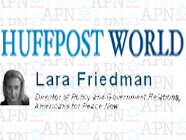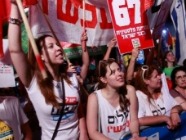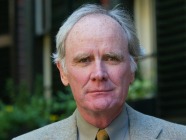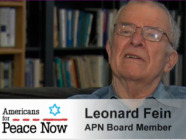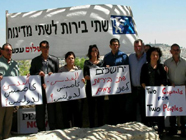The headlines in Israel today are all about cottage cheese. I'm not kidding. See for yourself. The story is about Israeli popular protest over the rising price of dairy products. Cottage cheese became the symbolic focal point for the protest, and for weeks it has been in the headlines.
Our colleagues in the Israeli Peace Now movement took advantage of the public debate to make the point that Israel's economic situation is directly impacted by the economic costs and the fiscal burden of settlements.
Peace Now released ads in print and through social media channels with the simple message: "This Cottage Costs You More!"
 The ad is based on a picture of cottage-style homes under construction in the settlement of Revava. The photo was taken by Peace Now's Settlement Watch team earlier this year.
The ad is based on a picture of cottage-style homes under construction in the settlement of Revava. The photo was taken by Peace Now's Settlement Watch team earlier this year.
Peace Now opposes settlement expansion because it undermines the prospects for resuming peace talks, burdens Israel's limited security resources, and makes a two-state solution more difficult.
Our colleagues in the Israeli Peace Now movement took advantage of the public debate to make the point that Israel's economic situation is directly impacted by the economic costs and the fiscal burden of settlements.
Peace Now released ads in print and through social media channels with the simple message: "This Cottage Costs You More!"
 The ad is based on a picture of cottage-style homes under construction in the settlement of Revava. The photo was taken by Peace Now's Settlement Watch team earlier this year.
The ad is based on a picture of cottage-style homes under construction in the settlement of Revava. The photo was taken by Peace Now's Settlement Watch team earlier this year.Peace Now opposes settlement expansion because it undermines the prospects for resuming peace talks, burdens Israel's limited security resources, and makes a two-state solution more difficult.
